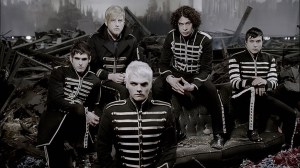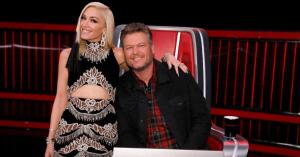Mickey Guyton teamed up with Amazon Music to celebrate Black History Month in February, sharing a cover of Beyoncé‘s 2008 hit “If I Were a Boy,” releasing exclusively on the platform. “It was important for me to record ‘If I Were a Boy’ because I have been fighting in country music for so long to just be accepted for who I am,” Guyton told PEOPLE. “This song represents the release and the birth of something new.”
“Really this song means so much more to me, and has a completely different meaning, than when I first heard it,” she added. The Texas native previously covered the song in 2016 and decided to bring it back for her partnership with Amazon Music, sharing a beautiful new rendition that features artwork by Jamilla Okubo. “I discovered Jamilla through Instagram, and it has been really important for me to support Black art in whatever capacity that is,” Guyton said. “When this project came together, I knew Jamilla needed to create the artwork, and it’s just so beautiful that we’re able to do this together. When people see the cover art for ‘If I Were a Boy,’ I really hope that people don’t see me, but that they see themselves.” You can listen to Guyton’s cover here.
Videos by PopCulture.com
View this post on Instagram
In November, the 37-year-old became the first Black female solo artist to be nominated for Grammy in a country music category, receiving a nod for Best Country Solo Performance for her song “Black Like Me.” On Friday, she earned an ACM Awards nomination for New Female Artist of the Year, having previously been up for the same honor in 2016. In 2020, Guyton released her EP Bridges, which features “Black Like Me” and the heartwrenching “What Are You Gonna Tell Her?,” which she performed at the ACM Awards in September. The performance made her the first-ever Black woman to give a solo performance of her own music during the annual show.
Bridges represented a musical shift for Guyton, who released her first single in 2015, a shift she says came after choosing to tell her own story. “I did Nashville the Nashville way for so long, and I had seen so many women do Nashville the Nashville way, with very little results, and that’s kind of how I felt within my own life as being a Black woman,” she told NPR. “I was having to face that and feel that, and go through studio sessions or makeup sessions having all these people around me that don’t look like me telling me how to do my hair and my makeup. And me a lot of times having to do my own hair, because people don’t know how to do my kind of hair. And me turning in a song and it automatically being [declared] too pop. It had to be all of those moments for me to get to a breaking point where I needed a song about it.”




